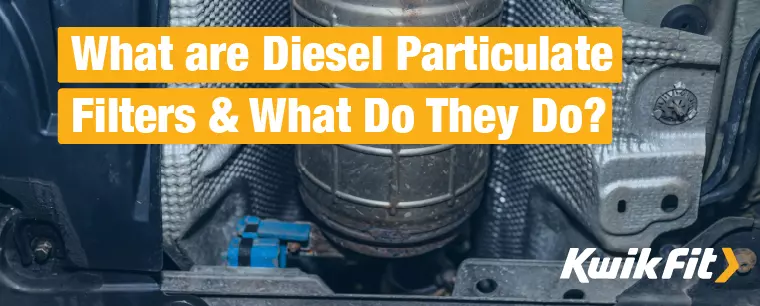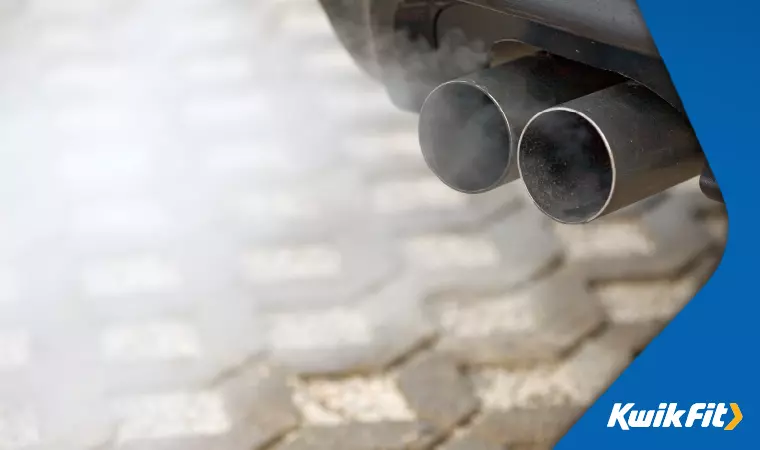What are Diesel Particulate Filters & What Do They Do?
Jack Dreyer | Thursday 2nd March 2023 2:55pm

If you’re short on time here, diesel particulate filters filter soot particles from the exhausts of diesel vehicles. This helps to stop that particulate matter from building up in areas of the exhaust system and clogging it up – so helps to avoid the need for more extensive cleaning, blocked exhausts, and more frequent maintenance.
But let’s take some time to learn exactly why they’re needed, and how they work.
Diesel is messy
A fun fact here is that the word “petroleum” comes from a Greek word literally meaning “rock oil”. And Petrol is the derivative of petroleum (crude oil) that we actually use for vehicles. But we’d never really consider petrol to be an oil – in fact, it evaporates at room temperature (and is likely why Americans call it “gas”). However, we need to look at where the fuels come from in order to understand this a bit better.
Crude oil, in its natural form, certainly is oily. It’s a combination of hydrocarbons developed over millions of years of organic decomposition – and it needs to be refined to be usable in any of the ways we’d use it today.
Petrol is a highly refined hydrocarbon; it’s refined to burn easily and quickly. But diesel is a lot less refined – so it’s a lot more oily and contains a lot more sediment particles. These get filtered out before the engine, but the oily properties of diesel mean that it burns much less cleanly. Consequently, the exhaust fumes contain considerably more soot and other unpleasant chemicals or gases.
Diesel Particulate Filters stop soot escaping into the air

The emissions from diesel vehicles have only recently, in the last few decades, begun to be singled out as problematic. So diesel particulate filters (DPFs) were designed to filter the exhaust gases and help reduce roadside air pollution.
Reducing the particulate matter from emissions is great for public health because long term exposure (or regular occupational exposure) to it can cause a huge range of health risks such as pulmonary problems and cardiovascular disease.
Importantly, DPFs are designed to capture mainly the soot, but they perform a very similar role to catalytic converters in also capturing harmful gases.
How do diesel particulate filters work?
The main aim of the filter is to capture matter, but this has to be weighed against efficiency. Imagine the filter is a sieve and you’re sieving cooking oil. If you only have one layer of the sieve mesh then it’ll get blocked up quite quickly.
So DPFs work by having multiple layers of honeycomb mesh arranged in a way that captures the particulate matter without blocking the system.
Over time, however, the particulate matter builds up on the mesh and can actually block the system. This is why DPFs need regular cleaning. Without being able to exhaust the combustion gases from the engine, the engine can’t continue to work. This can then cause erratic engine performance or outright breakdowns.
Get your DPF cleaned at Kwik Fit
If you’re having any engine trouble, book your car for a free assessment or a DPF clean at your local Kwik Fit centre – our experts are always on hand to help!
Any facts, figures and prices shown in our blog articles are correct at time of publication.
Featured Articles
Is it Illegal to Drive With One Headlight?
Saturday 19th July 2025
Wondering if it’s illegal to drive with one headlight? Learn about the safety risks and penalties of illegal blown bulbs and why you should fix them promptly.
Air Con in EVs & Hybrids: Experts Answer Your Questions
Monday 30th June 2025
Does air con drain EV batteries? Can you use the air con while charging an electric car? Find out the answers to these questions & more from Kwik Fit’s experts.
Why Is Your Car Making a Noise? Fixes & Tips
Friday 13th June 2025
When your car starts making unexpected noises, it can certainly be quite disconcerting; it may be nothing to worry about, but here’s what you need to know.









